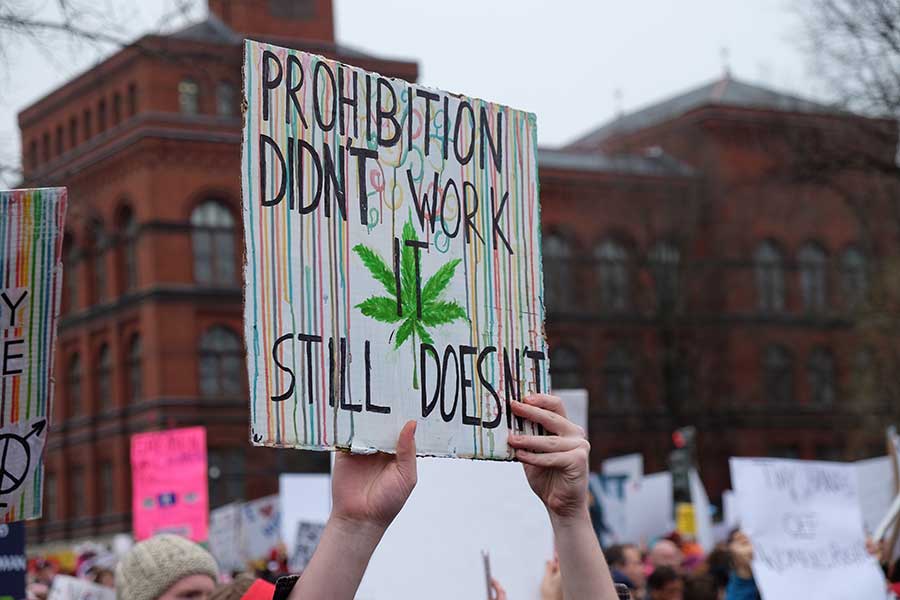Unveiling the Research Gap:
Challenging Cannabis’ Schedule 1 Classification
 In recent years, the debate surrounding cannabis legalization has gained significant traction, and proponents argue for its removal from the Schedule 1 list of controlled substances. However, a question lingers: Where is the research that justifies the classification of cannabis as a Schedule 1 drug? In this article, we explore the origins of cannabis prohibition, the elusive research behind its Schedule 1 status, and the pressing need for a thorough reevaluation.
In recent years, the debate surrounding cannabis legalization has gained significant traction, and proponents argue for its removal from the Schedule 1 list of controlled substances. However, a question lingers: Where is the research that justifies the classification of cannabis as a Schedule 1 drug? In this article, we explore the origins of cannabis prohibition, the elusive research behind its Schedule 1 status, and the pressing need for a thorough reevaluation.
Understanding Cannabis Prohibition:
Cannabis prohibition in the United States dates back to the early 20th century when a wave of anti-drug sentiment swept the nation. The Marihuana Tax Act of 1937 laid the foundation for the criminalization of cannabis, despite limited scientific evidence supporting such measures. Over time, the prohibitionist stance on cannabis gained momentum, eventually culminating in its classification as a Schedule 1 drug under the Controlled Substances Act of 1970.
The War on Drugs:
The “War on Drugs” declared in the 1970s further solidified cannabis’ Schedule 1 status. Under this policy, strict penalties were imposed for drug offenses, resulting in the incarceration of countless individuals for non-violent drug-related offenses. However, as the years went by, doubts arose about the effectiveness and fairness of this approach, prompting calls for reform.
The Schedule 1 Dilemma:
Schedule 1 classification is reserved for substances deemed to have a high potential for abuse, no accepted medical use, and a lack of safety even under medical supervision. Cannabis’s inclusion within this category has long been a subject of contention. Critics argue that the classification ignores mounting evidence of its therapeutic potential and contradicts the experiences of countless individuals who have used cannabis for various medical purposes.
Research Gap:
While lawmakers often cite the need for more research before considering rescheduling cannabis, the irony lies in the lack of substantial studies supporting its Schedule 1 classification in the first place. The classification itself has hindered the ability to conduct comprehensive research due to the legal and bureaucratic barriers imposed on scientists and institutions.
Limited Scientific Exploration:
Historically, obtaining approval to conduct rigorous studies on cannabis has been challenging, mainly due to regulatory constraints and the Schedule 1 classification. This has resulted in a dearth of controlled clinical trials and empirical research necessary to form a well-rounded understanding of cannabis’s potential benefits and risks.
Emerging Research and Changing Attitudes:
Despite these limitations, recent years have seen a notable shift in both public opinion and scientific exploration. Many countries and states have initiated cannabis legalization for medical and even recreational purposes, leading to an increase in research efforts. Scientists are now investigating cannabis’s potential in managing chronic pain, epilepsy, multiple sclerosis, and mental health conditions, among others. Nevertheless, more research is essential to fully unravel the medicinal properties and long-term effects of cannabis.
The Need for Reevaluation:
Given the evolving landscape surrounding cannabis, it is crucial for policymakers and regulatory bodies to reevaluate the Schedule 1 classification. Comprehensive research and evidence-based findings should guide this reassessment, weighing the potential benefits against the risks associated with cannabis use. By removing unnecessary barriers to research and fostering a climate of scientific inquiry, lawmakers can make informed decisions that align with public health and societal needs.
Conclusion:
As the clamor for cannabis legalization grows louder, questions about the research supporting its Schedule 1 classification demand answers. While various studies have shed light on cannabis’s potential benefits, a glaring research gap remains concerning its inclusion in the Schedule 1 list. However, rescheduling cannabis within the existing framework would still impose unnecessary restrictions on research, impede access for patients in need, perpetuate the stigma surrounding this plant, and kill the cannabis industry as we know it. The only logical solution is to de-schedule cannabis altogether.
Moving forward, it is imperative to prioritize rigorous scientific investigation to comprehensively understand the therapeutic potential and safety profile of cannabis. By embracing an evidence-based approach, lawmakers can make informed decisions that promote public health, reduce unnecessary criminalization, and provide access
0 Comments
Leave a reply
You must be logged in to post a comment.









